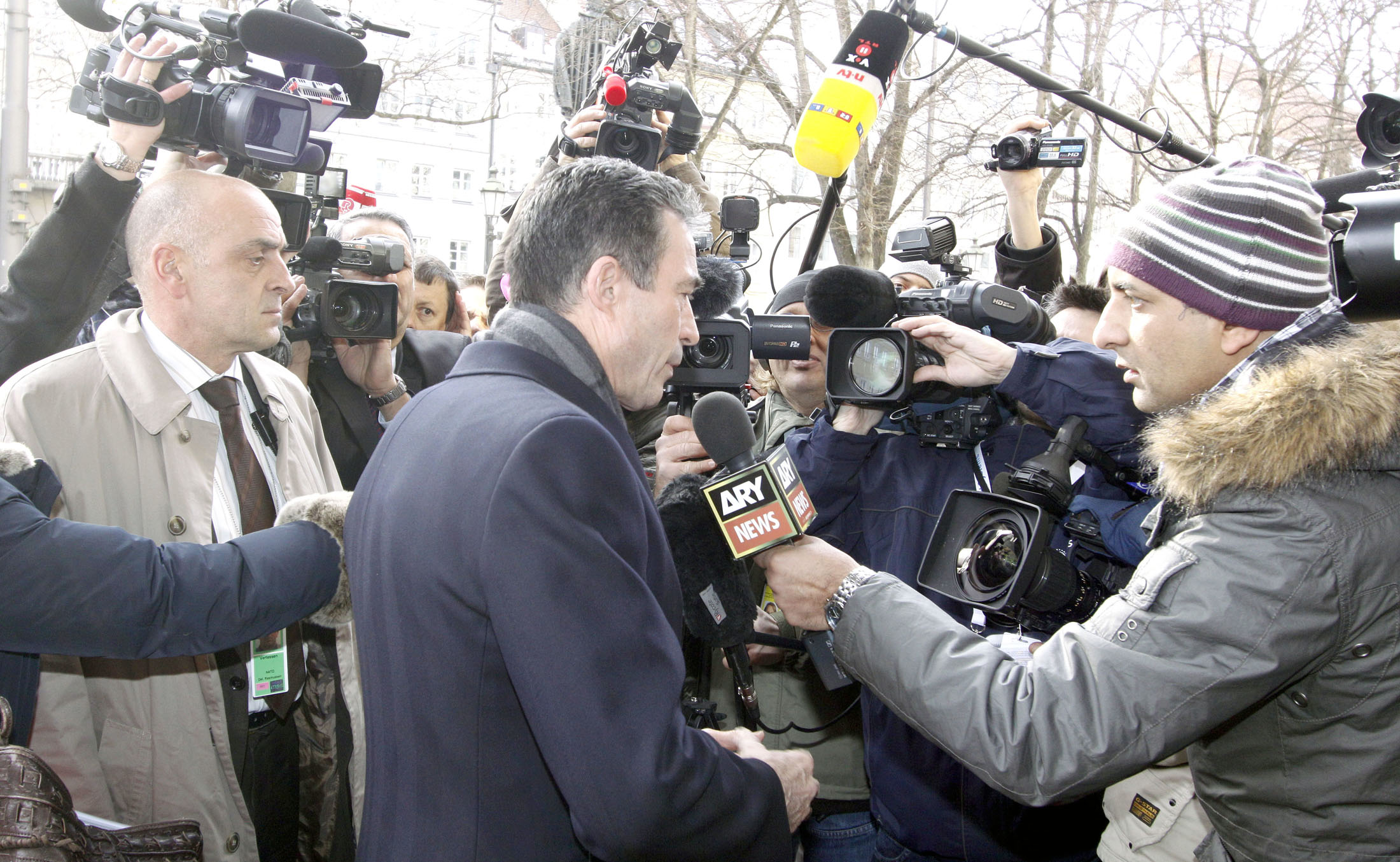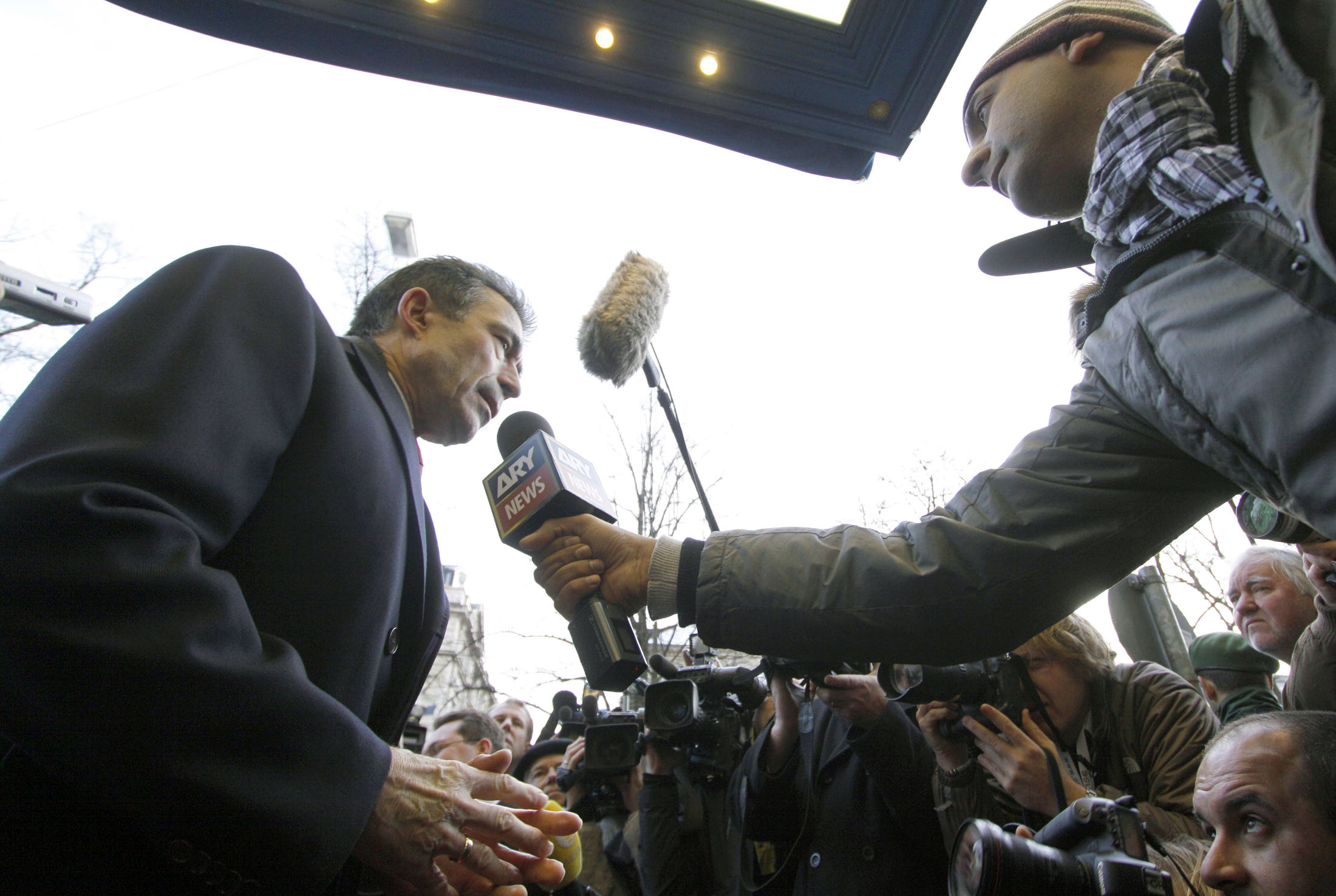NATO Secretary General calls for ''Smart Defence'' at Munich Conference
On 4 February, NATO Secretary General, Anders Fogh Rasmussen, delivered the keynote speech at the Munich Security Conference on building security in an age of austerity, a challenge he asserted that NATO was ideally situated to tackle.

The Secretary General recognised the fiscal challenges faced by government around the world, but warned against the worrying European trend of drastic defence budget cuts. He argued that without proper investment, we risk a Europe that is ‘divided, weaker and increasingly adrift from the United States,’ outlining a scenario in which European governments may be less capable of defending their populations against new threats.
 In response to this pessimistic scenario, Rasmussen presented a new approach to defence spending during tight economic times: Smart Defence – “ensuring greater security, for less money, by working together with more flexibility.” As part of this approach, he advocated for nations to “pool and share capabilities, to set the right priorities, and to better coordinate our efforts.”
In response to this pessimistic scenario, Rasmussen presented a new approach to defence spending during tight economic times: Smart Defence – “ensuring greater security, for less money, by working together with more flexibility.” As part of this approach, he advocated for nations to “pool and share capabilities, to set the right priorities, and to better coordinate our efforts.”
As the world’s most successful military alliance, NATO is ideally positioned to coordinate such efforts: “Pooling and sharing are vital if we want to develop our military know-how and capabilities and NATO is best placed to identify and connect nations that have similar needs but not enough money to build a capability on their own.” The Secretary General further noted that pooling resources isn’t enough, that money spent on defence needs to be prioritised, and that “we need to reduce bureaucracy and slim down our structures.”
 The Secretary General argued for the need for increased coherence: “This is the time to make better use of NATO as an adviser and an honest broker - to ensure a degree of coherence in any cuts which nations may consider, and to minimise their impact on the overall effectiveness of the Alliance.”
The Secretary General argued for the need for increased coherence: “This is the time to make better use of NATO as an adviser and an honest broker - to ensure a degree of coherence in any cuts which nations may consider, and to minimise their impact on the overall effectiveness of the Alliance.”
To better prepare for the future, Rasmussen stressed two priorities: “investing in science and technology, and creating greater coherence within Europe.” He argued for nations to devote a greater share of their Research and Development spending to multinational projects and for building closer links with the private sector. On Europe, the Secretary General highlighted that NATO and the EU share 21 members and that he “sincerely hoped that NATO and the EU would intensify their practical cooperation.”
In conclusion, the Secretary General emphasised that “Smart Defence is not about NATO imposing anything on nations. It is about enabling them to work better more effectively and efficiently together. NATO’s role is to set the strategic direction, to identify possible areas of cooperation, to act as a clearing house, and to share best practices.”
Dedicated to promoting dialogue and cooperation in the security field, the Munich Security Conference gathers world leaders to discuss current and future security challenges for over 40 years.
